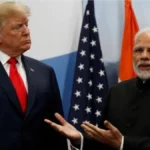President Donald Trump is set to implement a series of “reciprocal tariffs” on April 2, a day he has labeled “Liberation Day,” aiming to address what he perceives as unfair trade practices by U.S. trading partners. White House Press Secretary Karoline Leavitt emphasized that these tariffs will be comprehensive, with no exemptions.
During a recent briefing, Leavitt highlighted specific tariffs imposed by other countries on American products:
-
India: 100% tariff on agricultural products.
-
European Union: 50% tariff on American dairy products.Japan: 700% tariff on American rice.
-
Canada: Nearly 300% tariff on American butter and cheese.
Leavitt stated, “If you look at the unfair trade practices that we have… It’s time for reciprocity.”
President Trump has indicated that these tariffs are designed to match the duties that other countries apply to U.S. products and to compensate for non-tariff barriers that disadvantage American exports. He has also suggested that these measures could be temporary if they lead to more favorable trade agreements.
The announcement has elicited varied reactions globally. A recent poll indicates that a significant majority of Europeans support imposing retaliatory tariffs against the U.S. if these measures are enacted. European Commission President Ursula von der Leyen has warned that the European Union “holds a lot of cards” and is prepared to implement “firm and proportionate countermeasures” in response to U.S. tariffs.
Economists and industry leaders have expressed concerns that these tariffs could lead to increased consumer prices, disrupt global supply chains, and potentially trigger a trade war, affecting both the U.S. and global economies.
As the implementation date approaches, further details on the specific tariffs and their potential implications are anticipated.











